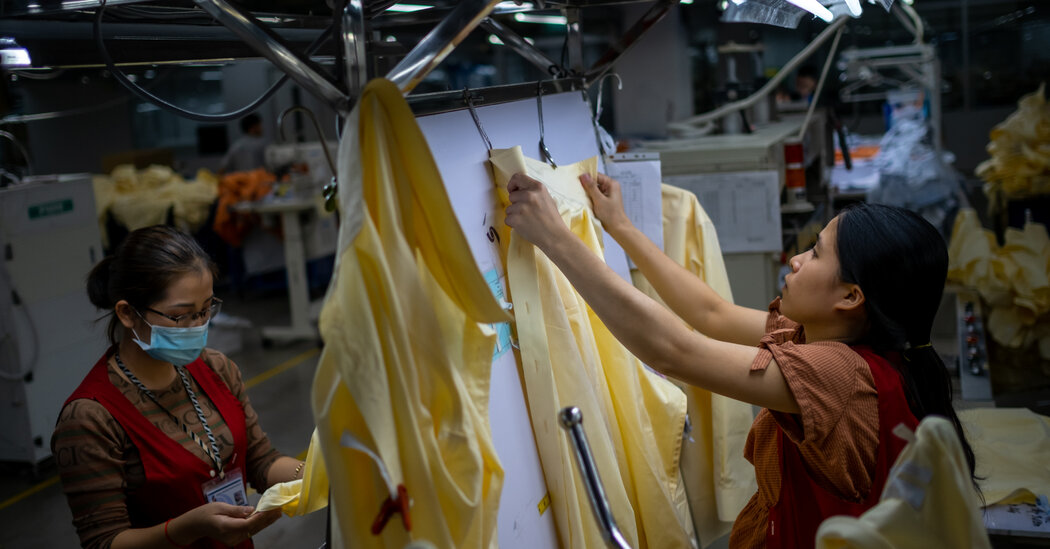Toy prices could jump 50% following Trump’s tariffs on China, Vietnam

The toy aisle is about to get more expensive.
President Donald Trump expanded his trade war this week, placing a 10% baseline tariff on almost every country and much steeper levies on dozens of others. Among those hit with higher tariffs were China and Vietnam — two nations that are vital to the domestic toy industry.
For decades, U.S. toy companies have worked with Chinese manufacturers to bring the hottest action figures, dolls and games to retail shelves. Vietnam became a solid secondary market for companies looking to diversify their factory locations amid growing trade tensions between Washington and Beijing.
Trump slapped China with an additional 34% duty Wednesday, bringing the total tax on goods from the nation to 54%, and hit Vietnam with a 46% tariff. The levy is far higher than what toy companies expected and could lead to massive price hikes on toys, industry experts said.
“Everyone is really in scramble mode,” Greg Ahearn, president and CEO of The Toy Association, told CNBC. “This is going to have massive negative repercussions for the consumer and for our industry.”
Adding to the tensions, China is set to impose a retaliatory 34% levy on all U.S. products, its commerce ministry announced Friday.
“I think the Vietnam situation will be a little bit easier to negotiate, as far as I think we will see the Vietnamese country and government come to the table quicker than China trying to resolve any trade disputes,” said Curtis McGill, co-founder of Hey Buddy Hey Pal, which makes the Eggmazing Egg Decorator, a crafting tool that spins eggs so kids can use markers to color them. “They’re just not in a place where they can stand losing much of the business.”
Around 77% of toys imported into the United States come from China, according to data from The Toy Association. Vietnam is third, just behind Mexico. Trump previously placed a 25% tariff on goods from Mexico that aren’t compliant with the United States-Mexico-Canada Agreement.
Hasbro and Mattel, leaders in the toy space, both incorporated a 20% tariff impact from China in their guidance projections for 2025 and had strategies in place to shift production to other countries, like Vietnam, Indonesia and India, all three of which were also hit with tariffs — 46%, 32% and 26%, respectively.
“As a result, relocating production may not be financially viable,” wrote Eric Handler, analyst at Roth, in a research note to investors published Thursday. “The consumer should soon see price increases to partially offset the tariff impact.”
Hasbro and Mattel report first-quarter earnings this month, and Handler said investors will likely see guidance cuts from both companies.
Toy companies have already been slammed on Wall Street in the wake of the tariff announcement. Mattel shares fell more than 16.5% in Thursday trading, Hasbro lost more than 12% and Funko, which also has manufacturing in China and Vietnam, saw its stock plummet 18%.
While Handler expects companies to try and lower costs through contract renegotiations with manufacturers and, perhaps, even altering packaging to improve margins, he said there is little doubt that consumers will bear the brunt of Trump’s duties.
“You could have anywhere from 35% to potentially even a point-for-point price increase on products depending upon what margin those products run at,” The Toy Association’s Ahearn said. “It may actually just be a 50% price increase, given it’s a 54% tariff.”
Most toy margins are in the high single digits, he noted. So, there is very little wiggle room for companies to absorb these fees.
“There’s no place for it to go, but to the consumer,” Ahearn said, noting that The Toy Association expects price hikes to coincide with this year’s back-to-school season.
“The greatest budgetary impact on are the folks, unfortunately, who can afford it the least,” he said.











